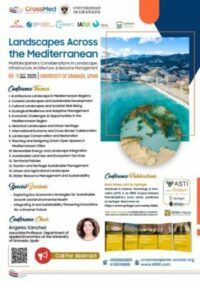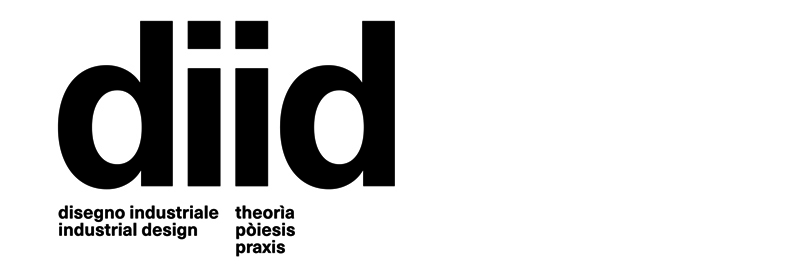Jul
2020
We recognize Design as a discipline of “doing”. Its practical dimension has often exceeded the theoretical one, and the latter has always placed the first one at the centre. However, if in the 20th century, this type of approach it was considered consolidated, is it possible today to say that the dimension of “doing” associated with Design is still so predominant? How is Design expressing its applied dimension? Makes still the “profession” of the designer specialize in product categories sense? Several studies, both economic and social, are questioning or trying to prefigure what the world of work will be in the coming decades. Many are focusing their attention on the role that (smart) machines will have on the work and, more recently, how this revolution will base on the cooperation between machines and human beings. A World Economic Forum survey predicted that in 2025, more than 50% of the work should be by machines. This dependence on technology will be different from what we know today. It will increasingly resemble a real partnership where at the machines, in addition to the operational capabilities – of speed, efficiency, productivity – will be required skills such as creativity, passion, entrepreneurial mindset, to accomplish what many call the Collaborative Industry. This partnership naturally implies that the job will change, just as the job search process itself will be completely different. It will be an evolutionary process in which society has conquered the “factory space”, free from any symbolic industrial enclosure. The work will stop to be represented and carried out in a place because increasingly widespread and structured in a series of tasks in which the machine learning organization itself will pursue the best talent for evermore discreet tasks. In this scenario, what role can Design play? What space will it occupy between the professions of the future? What skills will be required? What should be its relationship with the systems of production and consumption? Moreover, above all, could we still call the operators of Design “designer”? The issue opens up to applied experiments where Design is outlining a different nature and prefiguring a new role in and for society.
The call is open on two different tracks. For the track “Make“, the expected contributions will have to tell experiences (direct or indirect) of new applied forms of Design that are under experiment today in order to be dominant in the near future. The authors are asked to open an exploratory investigation, a form of scouting, on the new practical dimensions of Design by answering these questions: What are the experiences that demonstrate new forms of practice, professional or experimental, of Design? Where do these experiences take place: in schools, research centres, companies, start-ups? What are the results, in terms of products, materials and intangibles, that these new practices are obtaining?
For the track “Focus“, the contributions must express with an evolutionary key the changes that Design is experiencing as a consequence of social, economic and technological changes in a new sort of hybridization with other skills, generating new ones. The authors have to prefigure the different forms of the practical and multidisciplinary dimension of the next Design, answering these questions: To what social, cultural, technological, economical, productive evolutions are these new practices providing feedback? Is there a multidisciplinary dimension of these practices? If so, what other knowledge are feeding this evolved form of Design? Is it possible to recognize as Designer even those who have not trained in the Design schools? If yes, does it make sense to call them designers, in the most classic sense, or are we witnessing the birth of new practices?
Design 2030 | Practices
We recognize Design as a discipline of “doing”. Its practical dimension has often exceeded the theoretical one, and the latter has always placed the first one at the centre. However, if in the 20th century, this type of approach it was considered consolidated, is it possible today to say that the dimension of “doing” associated with Design is still so predominant? How is Design expressing its applied dimension? Makes still the “profession” of the designer specialize in product categories sense? Several studies, both economic and social, are questioning or trying to prefigure what the world of work will be in the coming decades. Many are focusing their attention on the role that (smart) machines will have on the work and, more recently, how this revolution will base on the cooperation between machines and human beings. A World Economic Forum survey predicted that in 2025, more than 50% of the work should be by machines. This dependence on technology will be different from what we know today. It will increasingly resemble a real partnership where at the machines, in addition to the operational capabilities – of speed, efficiency, productivity – will be required skills such as creativity, passion, entrepreneurial mindset, to accomplish what many call the Collaborative Industry. This partnership naturally implies that the job will change, just as the job search process itself will be completely different. It will be an evolutionary process in which society has conquered the “factory space”, free from any symbolic industrial enclosure. The work will stop to be represented and carried out in a place because increasingly widespread and structured in a series of tasks in which the machine learning organization itself will pursue the best talent for evermore discreet tasks. In this scenario, what role can Design play? What space will it occupy between the professions of the future? What skills will be required? What should be its relationship with the systems of production and consumption? Moreover, above all, could we still call the operators of Design “designer”? The issue opens up to applied experiments where Design is outlining a different nature and prefiguring a new role in and for society.
The call is open on two different tracks. For the track “Make“, the expected contributions will have to tell experiences (direct or indirect) of new applied forms of Design that are under experiment today in order to be dominant in the near future. The authors are asked to open an exploratory investigation, a form of scouting, on the new practical dimensions of Design by answering these questions: What are the experiences that demonstrate new forms of practice, professional or experimental, of Design? Where do these experiences take place: in schools, research centres, companies, start-ups? What are the results, in terms of products, materials and intangibles, that these new practices are obtaining?
For the track “Focus“, the contributions must express with an evolutionary key the changes that Design is experiencing as a consequence of social, economic and technological changes in a new sort of hybridization with other skills, generating new ones. The authors have to prefigure the different forms of the practical and multidisciplinary dimension of the next Design, answering these questions: To what social, cultural, technological, economical, productive evolutions are these new practices providing feedback? Is there a multidisciplinary dimension of these practices? If so, what other knowledge are feeding this evolved form of Design? Is it possible to recognize as Designer even those who have not trained in the Design schools? If yes, does it make sense to call them designers, in the most classic sense, or are we witnessing the birth of new practices?
ANVUR
There is no fee of any kind charged for publishing
Editors
Loredana Di Lucchio
Lorenzo Imbesi
Sabrina Lucibello










